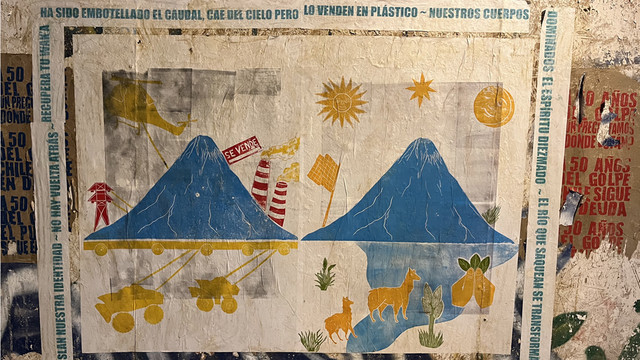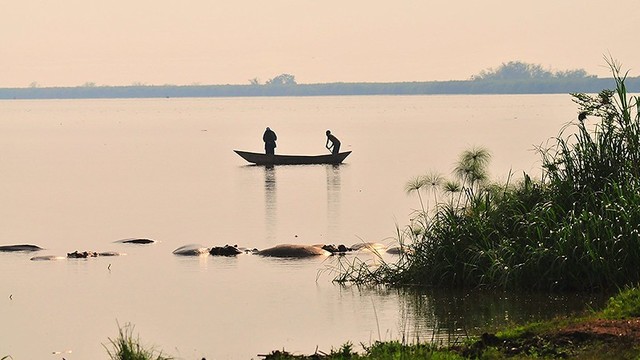Transitioning towards a plastic free world
Discarded plastic is one of the biggest threats to our oceans. IIED's Essam Yassin Mohammed says we must do more to tackle the problem of plastic pollution.


Plastic debris litters the beach on Clipperton Island, a tiny uninhabited coral atoll in the eastern Pacific Ocean (Photo: Clifton Beard via Flickr, CC BY-NC 2.0)
Plastics have become part of our daily life. We have reached a point where we cannot imagine life without plastics. From plastic shopping bags and takeaway food containers, to our disposable cups and cutlery and bicycle tires – the list is very long.
Plastic production continues to grow, mainly due to increasing global population and demand for cheaper alternatives for metal, glass and wood. In 2016, 335 million metric tons of plastic were produced worldwide.
What’s the big deal?
Most of this plastic ends up in the natural environment. As little as 9% is recycled. Much of the rest finds its way into rivers and eventually the ocean. Plastics comprise up to 90% of litter on the ocean's surface.
This has significant economic, environmental and health implications. Microplastics have become part of the food chain of marine life. They are ingested by zooplankton which in turn are eaten by bigger fish – and therefore by humans too.
Some studies show that plastics are affecting the physiology of many fish species – with impacts ranging from brain damage to infertility. They have also affected sea turtles and other marine animals physically. Photographs of plastic straws stuck in turtles’ nostrils and entangled marine mammals have become a social media sensation.
These plastics are collected by ocean currents to form large swirling patches marine plastic litter. Two of the main patches of litter are located in the Indian and Pacific oceans. They affect many Small Island Developing States – forcing them to disproportionately shoulder the burden of plastic pollution.
Deal but no deal
Despite the mounting evidence on the significance of plastic pollution and its harm to the environment and society at large, action to reverse the trend has been limited.
In December last year, all members of the United Nations ‘committed’ to a plan to curb plastic waste entering the ocean. In typical UN language, 'commitment' means that the resolution is neither legally binding nor time bound.
Some countries such as Rwanda, Bangladesh and Kenya have introduced total bans on plastic bags. Others have employed fiscal tools such as fees and taxes for single-use plastic bags.
While such ad hoc initiatives should be applauded and encouraged, a much bigger and wider coordinated effort is needed to tackle this menace. The world desperately needs a Paris Agreement for ocean plastic pollution.
Let’s get the economics of plastics right
Tackling plastic waste needs understanding of the economics behind it. To begin with, the proliferation of plastic is mainly due to the fact that it is a cheaper alternative to wood, metal and glass.
Plastic is 'cheap' if one considers the input cost of production only. However, if we take into account the costs to the environment and societies, then it is indeed very expensive.
The costs to the environment and societies – commonly referred to as ‘externalities’ – are not accounted for. Public policies such as fiscal tools are effective in internalising such externalities. For example, governments could raise taxes and fees to discourage mass production of plastics.
Similarly, consumers could be given a nudge to reduce their plastic use. In England for instance, the introduction of a 5 pence charge for each single-use plastic shopping bag reduced bag useage by a hefty 85% in the first year.
Positive incentives to promote alternative solutions to plastics should also be introduced. Governments could use tax breaks or subsidies to incentivise business to develop biodegradable and environmentally friendly solutions to end this problem.
Technological transfer
While it may seem a good idea to introduce a total ban on plastic bags and other disposable items, many countries have failed to offer their citizens a viable alternative. These countries, most of which are in the global South should be supported through genuine and sustainable technological transfer.
What will IIED do?
At IIED, we will be focusing on two key issues:
- understanding the economic cost of plastic pollution for small island developing states, and
- developing a methodological toolkit to conduct a ‘plastic footprint’ of firms and nations.
We will work with our partners to ensure the problem of plastic pollution becomes history. There is no Ocean B. The only way to save our ocean is by making the problem of plastic waste history within a generation.
About the author




